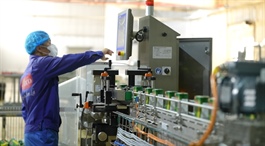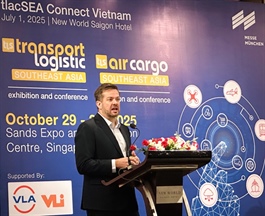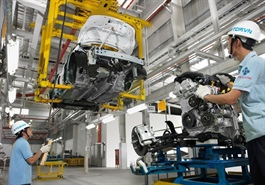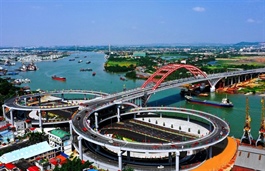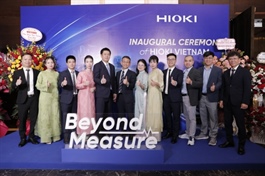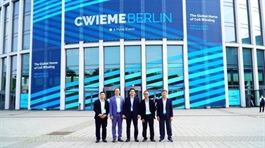Vietnamese seafood can conquer ASEAN
Vietnamese seafood can conquer ASEAN
Non-tariff barriers have a substantial impact on seafood exports to ASEAN markets, with several key obstacles related to regulations, certification requirements, and technical standards.
Sanitary and phytosanitary measures (SPS) are among the most frequently cited barriers, including stringent regulations on inspection, certification, and compliance with food safety standards. Many ASEAN countries apply strict inspection and certification to ensure that seafood is free from contamination or meets quality standards, leading to shipment delays, increased costs, and uncertainty for exporters.

Le Hang, deputy general secretary, Vietnam Association of Seafood Exporters and Producers |
Compliance with SPS often requires additional documentation, testing, and specific handling procedures, which pose significant challenges, particularly for small businesses.
Technical barriers to trade (TBT) are related to standards and regulations surrounding labelling, packaging, and technical specifications. For seafood, TBT may require specific labelling formats, traceability systems, or adherence to environmental and sustainability standards.
TBT creates considerable barriers by forcing businesses to adapt processes to meet varying standards that are sometimes inconsistent across ASEAN countries. The ASEAN Trade in Goods Agreement includes TBT regulations, reflecting their importance as a technical barrier.
Moreover, several ASEAN countries require import permits or certifications for seafood, which may be subject to quotas, lengthy approval processes, or arbitrary decisions. These requirements limit market access and cause delays. For instance, import permits in Malaysia and Indonesia have been reported as burdensome for Thai exporters, presenting similar challenges for other exporters in the region.
Some improvements are necessary to strengthen Vietnam’s position in the regional supply chain, particularly in seafood exports to ASEAN.
It needs to improve domestic policies to reduce risks from NTBs, starting with the standardisation of compliance processes. NTBs such as SPS, TBT, and Halal certification require complex documentation, testing, and infrastructure, raising costs and prolonging export times. Currently, Vietnam lacks unified standards that align with ASEAN requirements, resulting in high compliance costs.
There is a need to develop national standards that align with ASEAN regarding SPS, labelling, and traceability following guidelines, such as those for preventing the entry of products from illegal, unreported, and unregulated fishing. For example, standardising health certification processes could reduce testing costs, which currently range from $100-500 per shrimp sample.
Strengthening the capacity of regulatory authorities to issue SPS and Halal certification more quickly could shorten approval times from one to six months to one or two months.
Halal certification is mandatory in major markets like Indonesia and Malaysia but can be costly and time-consuming. Vietnam currently lacks ASEAN-recognised Halal certification bodies, placing exporters at a disadvantage.
To more effectively leverage free trade agreements (FTAs) and reduce NTBs, it is essential to provide training programmes and subsidies for seafood enterprises to meet Halal standards, particularly for small- and medium-sized enterprises, thereby reducing upgrade costs, which currently range from $10,000 to $100,000.
Secondly, Vietnam must enhance its negotiating capacity in regional and bilateral agreements. Some trade deals offer tariff and non-tariff benefits to member states, but Vietnam has yet to fully exploit these advantages to reduce NTBs.
Engaging in bilateral FTA negotiations with ASEAN countries such as Indonesia and Malaysia to reduce import permit requirements, which may take five to 30 days for approval, is also crucial.
As a member of the Regional Comprehensive Economic Partnership, Vietnam can leverage its position to advocate for transparency provisions and reductions in NTBs, ensuring that ASEAN cosmetic directive regulations do not become unreasonable barriers.
In the face of numerous market challenges, costs, and technical barriers, the Vietnam Association of Seafood Exporters and Producers (VASEP) has implemented a series of solutions.
Firstly, VASEP serves as a bridge between businesses and regulatory authorities, promptly recommending policies to support production and exports. Many of our proposals have been recognised and addressed by the government and various ministries, such as resolving issues pertaining to raw material verification, borrowing costs, and minimum size regulations for seafood.
In terms of trade promotion, VASEP organises the Vietfish trade fair, holds seminars in key markets, and collaborates on international communications to promote Vietnamese seafood.
Moreover, VASEP has intensified training and consulting efforts to help businesses meet international standards on environmental, social, and governance, traceability, sustainable sourcing, and green transformation.
| Non-tariff barriers hindering free flow of goods and services 'Shared vision' driving Vietnam–New Zealand economic partnership One ASEAN, one voice: breaking barriers, boosting trade Soothing non-tariff barriers to improve regional trade |
- 08:48 02/07/2025









